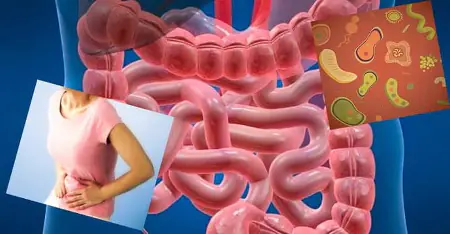A fairly common occurrence in medical practice is an overdose of sedatives, resulting from violation of the rules of administration, individual sensitivity to the components of the drug, or exposure to other risk factors. Poisoning manifests itself with very specific symptoms and can be mild, moderate or severe. Most often, the pathological condition requires emergency medical care, the speed of which depends not only on the health, but also on the life of the victim.
The content of the articleBasic information
Sedatives are a group of drugs (psycholeptics) of herbal or chemical origin, the action of which is aimed at reducing emotional stress (calming) without a hypnotic effect. In comparison with stronger tranquilizers or antidepressants, sedatives do not have a pronounced antiphobic effect, and also do not cause muscle relaxation (myorelaxation) and chaotic heterogeneous muscle contractions (ataxia). This type of medication is successfully and safely used to treat mental disorders in elderly and senile patients.
Classification of sedatives
The most common sedatives are medications based on valerian, motherwort and mint. No less widely used are sodium and potassium bromides. In some cases, barbiturates are used as sedatives, which have a mild hypnotic effect. However, using the latter for a long time is extremely inappropriate due to the development of drug dependence on the dose.
Causes of overdose of sedatives
The problem of intoxication with sedatives is due to the fact that most of these drugs are sold in pharmacies without a doctor's prescription, as well as the tendency of people to self-medicate. Poisoning can be intentional (attempted suicide) or accidental (failure to comply with the instructions for using pills).
Most often, middle-aged and elderly people, mainly men, suffer from an overdose of sedative pills. The prevalence of sedative overdose is slightly lower among children and adolescents under 15 years of age, since this category of citizens uses medications the least. In addition, the use of expired medications and/or combining them with other pharmaceuticals can also cause serious intoxication of the body.
If, despite maintaining a normal daily routine, the use of sedatives does not give the desired effect, you should consult a specialist.
Symptoms
We wrote about an overdose of Novo-passit. Now let’s look at the main clinical signs of poisoning with sedatives in general. So, what happens if you take a lot of sedatives?
- Headache and dizziness; Even an overdose of valerian can negatively affect the health of an elderly person, although it is classified as a mild sedative.
First aid and subsequent treatment
Mild poisoning often does not require medical intervention. It is enough to do a gastric lavage and take a sorbent to eliminate the negative symptoms. But since it is very difficult for a non-specialist to determine with high accuracy the boundary between degrees of severity, it is best to play it safe and call an ambulance.
What to do in case of an overdose of sedatives before the doctors arrive? Rinse the stomach: drink a couple of glasses of clean water and mechanically induce vomiting (press your fingers on the root of the tongue). Repeat the procedure several times until the wash water is clear.
After emptying the stomach, take enterosorbent. This is a drug that binds and removes toxins from the body, normalizes digestion and restores intestinal microflora after poisoning, and will be effective both as an emergency aid and as a therapeutic and prophylactic agent for further therapy.
The most affordable sorbents that should be in any first aid kit:
- Activated carbon;
- Smecta;
- Polysorb;
- Polyphepan;
- Enterosgel;
- Neosmectin;
- Bifiform;
- Whitesorb et al.
After completing the activities, you need to follow the instructions of specialists and drink plenty of fluids to “flush” toxins from the body.
Further therapy for an overdose of sedatives consists of taking antihistamines (antiallergic) drugs, enterosorbents, painkillers, antiemetics, etc. The list of medications can be expanded depending on the variety of clinical manifestations. Only a doctor can prescribe medications for poisoning.
Consequences of overdose
Any emergency condition, including intoxication with sedatives, does not pass without leaving a trace on the body. All acute symptoms can transform into chronic pathologies or life-threatening conditions:
- renal/liver failure;
- Quincke's edema;
- anaphylactic shock;
- respiratory dysfunction;

- cardiovascular diseases;
- intestinal dysbiosis;
- disruption of brain function;
- paralysis;
- coma;
- death.
The lethal dose of a sedative for a person is calculated purely individually. Medicine knows of cases where intoxication developed and death occurred from taking tablets in an amount of 0.1-0.3 g per kg of body weight. And vice versa, from the dose of 45 g taken, not only did no one die, but they continued to feel great.
Prevention
The main methods for preventing overdose of sedatives are as follows:
- Do not self-medicate.
- Carefully study the instructions before using the drug, in particular, sections with contraindications and side effects.
- Do not exceed the dosage permitted by the instructions and the doctor.
- Do not take medicine that has expired.
- Observe the storage conditions of the medicine specified in the instructions.
- Store medications in places inaccessible to children and elderly and senile people, as well as those suffering from dementia.
If you follow these rules, then neither you nor your loved ones will suffer from an overdose of sedatives.
Sedatives are the safest of all psychotic drugs. They do not cause withdrawal symptoms, do not provoke the development of addiction, and at the same time show good effectiveness in the treatment and prevention of nervous disorders. But nevertheless, to prevent the medicine from becoming a poison, you need to be careful when using sedatives, follow the instructions and doctor’s recommendations.



